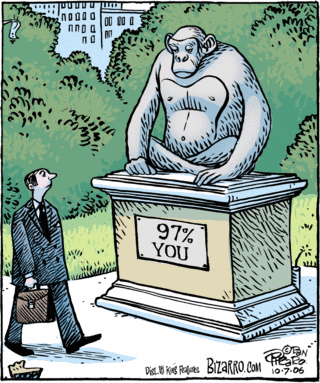YouTube shared user data with studio lawyers
Video site helped Paramount Pictures track down and sue filmmaker
By Ben Charny, MarketWatch
Last Update: 5:04 PM ET Oct 20, 2006
SAN FRANCISCO (MarketWatch) -- It's no secret that millions of Internet users every day watch copyright-infringing video clips on YouTube, the upstart Web site that Google Inc. has agreed to acquire for $1.65 billion.
What's less known is that YouTube has been watching the watchers.
YouTube's actions in response to a subpoena it received in May show that it has been keeping tabs on users who post copyrighted material to its site -- and in one case shared the name of a user with lawyers from a Hollywood film studio.
On May 24, lawyers for Viacom Inc.'s Paramount Pictures convinced a federal judge in San Francisco to issue a subpoena requiring YouTube to turn over details about a user who uploaded dialog from the movie studio's "Twin Towers," according to a copy of the document.
'I was happy to utilize YouTube when it was still not clearly established. It felt a bit utopian, even though the days for that were clearly numbered.'
— Chris Moukarbel, filmmaker
YouTube promptly handed over the data to Paramount, which on June 16 sued the creator of the 12-minute clip, New York City-based filmmaker Chris Moukarbel, for copyright infringement, in federal court in Washington.
That YouTube chose to turn over the data, rather than simply remove the offending video from its site -- as it did Friday when it agreed to take down 30,000 videos at the request of a group of Japanese media companies -- came as a surprise to copyright experts.
"YouTube seems to have given up too easily," said Laurence P. Colton, an intellectual-property lawyer at the firm of Powell & Goldstein LLP in Atlanta.
Its prompt legal capitulation suggests that YouTube users who post copyrighted material should not expect the company to protect them from media-business lawsuits, said Colton, whose firm wasn't involved in the Paramount subpoena or lawsuit and who learned of them from a MarketWatch reporter.
The "Twin Towers" episode is reminiscent of the way the entertainment industry vanquished the first version of Napster Inc. (NAPS
napster inc com and other digital-music sites that made it easy to download copyrighted songs over the Internet.
Music company lawyers first warned and then sued individual users who downloaded their songs. Now it looks like piracy hunters for the movie studios are using the same technique against YouTube users.
YouTube's decision to help Paramount track down Moukarbel stands in stark contrast to the philosophy of Google, which has fought the U.S. Justice Department over attempts to access data about consumers who use its search services.
Google ) (GOOG has balked at releasing even the most innocuous information about its users' behavior to the U.S. government in the past. Also, it's now battling requests for user details coming from Brazilian and Indian government investigators.
Google declined repeated phone and e-mail requests for comment for this story. Julie Supan, YouTube's senior marketing director, declined comment.
The end of 'utopia'
With more media companies signaling that they will come after YouTube for compensation over copyrighted material, Moukarbel's experience suggests that some of those among the Web site's 40 million users who post copyrighted material can expect legal trouble.
Moukarbel settled the suit after he admitted making the film and agreed to remove it from his own Web site and from YouTube, according to a copy of a court order that was part of the settlement. He also agreed to make an effort to remove it from other sites where it had been posted.
Moukarbel told MarketWatch in an interview that YouTube's actions signaled to him the end of an era for the video site.
"I was happy to utilize YouTube when it was still not clearly established. It felt a bit utopian, even though the days for that were clearly numbered," Moukarbel said.
It remains to be seen if this has any chilling effect on the phenomenal growth of YouTube, which was founded just 20 months ago by former executives of PayPal, the electronic payment firm that was eventually acquired by eBay Inc.
The freewheeling nature of the site - and its apparent cloak of user anonymity -- has helped the upstart become a top 20 Web site whose users watch up to 100 million video clips every day.
A slew of lawsuits like those filed against individual digital music pirates could change that atmosphere, and perhaps the growth rate, of YouTube's online community.
"This community was built as a kind of free-for-all, where people could have a lot of fun and do it rather anonymously," Colton said. "You don't get that kind of community by saying, 'Here, sign up and at the simplest drop of a subpoena, we'll give that information away.' "
To be sure, Google, which hopes to close the YouTube purchase by year's end, has already taken steps to reduce the copyright liability it will inherit from the private firm. Just before it announced the acquisition of YouTube, the two companies signed licensing agreements with several large media firms, including Vivendi's Universal Music Group, Warner Music Group Corp. (WMG ) , Sony BMG and CBS Corp. (CBS
CBS Corp
CBS )
Several large entertainment industry providers are now teaming up to request compensation from the site, according to The Wall Street Journal. Viacom (VIA ) , which owns Paramount, estimates that pirated versions of video clips from its MTV, Comedy Central and Nickelodeon channels are watched 80,000 times a day on YouTube, according to the Journal.
Paramount Pictures spokeswoman Nancy Kirkpatrick said that the company's actions against Moukarbel "in no way means we're targeting YouTube." She declined further comment on the lawsuit against Moukarbel.
When asked about YouTube, a spokeswoman for the Motion Picture Industry Association said "we continue to pursue those who violate copyright laws on all levels, and we will continue to monitor YouTube for copyrighted material."
That means YouTube users who post such material could face legal problems similar to Moukarbel's.
Moukarbel, meanwhile, said he harbors no hard feelings toward YouTube about the incident.
"I was happy with its run on YouTube, and, frankly, I was surprised it lasted as long as it did," he said. "That they eventually offered my information to Paramount doesn't bother me at this point." End of Story
Ben Charny is a MarketWatch reporter based in San Francisco
Saturday, October 21, 2006
Saturday, October 14, 2006
Veterans History Project (Library of Congress)
Sleuth Now Before It’s Too Late
By Suzanne Freeman
May 2005
If you want to connect with someone about World War II, don’t delay. "My advice for anyone interested in this subject is to get a tape recorder out and get going now," says author Jonathan Gawne. "The veterans are dying and the days of even being able to track down somebody’s Army buddy are almost at a close."
Read everything you can, Gawne says, and use Internet resources, such as websites and message boards [see list below]. Research the National Personnel Records Center, the National Archives and other facilities for documents and photos. Contact veterans organizations. Ask friends and relatives for old letters.
The important thing, he adds, is to keep in mind what you’re really looking for. After his own father died in 1986, Gawne started looking "not for medals or valor or tales of derring-do. I wanted to find out what he had gone through in the hopes of trying to understand the man better."
Web Resources
AARP’s interactive WW II Memorial photo gallery.
The Veterans History Project is a Library of Congress oral history archive sponsored by AARP that provides tips for interviewing veterans.
Dad’s War links to many different groups with their own WWII stories.
The companion website to Jonathan Gawne’s book, Finding Your Father’s War, has resources for researching WWII histories.
Books
Finding Your Father’s War: A Practical Guide to Researching and Understanding Service in the World War II U.S. Army by Jonathan Gawne, Casemate Publishers (July 2005).
My Father’s War by Julia Collins, Four Walls Eight Windows (2003).
Our Fathers’ War: Growing Up in the Shadow of the Greatest Generation by Tom Mathews, Broadway (May 2005).
Our Mothers’ War: American Women at Home and at the Front During World War II by Emily Yellin, Free Press (2004).
The Souvenir: A Daughter Discovers Her Father’s War by Louise Steinman, Plume (2002).
By Suzanne Freeman
May 2005
If you want to connect with someone about World War II, don’t delay. "My advice for anyone interested in this subject is to get a tape recorder out and get going now," says author Jonathan Gawne. "The veterans are dying and the days of even being able to track down somebody’s Army buddy are almost at a close."
Read everything you can, Gawne says, and use Internet resources, such as websites and message boards [see list below]. Research the National Personnel Records Center, the National Archives and other facilities for documents and photos. Contact veterans organizations. Ask friends and relatives for old letters.
The important thing, he adds, is to keep in mind what you’re really looking for. After his own father died in 1986, Gawne started looking "not for medals or valor or tales of derring-do. I wanted to find out what he had gone through in the hopes of trying to understand the man better."
Web Resources
AARP’s interactive WW II Memorial photo gallery.
The Veterans History Project is a Library of Congress oral history archive sponsored by AARP that provides tips for interviewing veterans.
Dad’s War links to many different groups with their own WWII stories.
The companion website to Jonathan Gawne’s book, Finding Your Father’s War, has resources for researching WWII histories.
Books
Finding Your Father’s War: A Practical Guide to Researching and Understanding Service in the World War II U.S. Army by Jonathan Gawne, Casemate Publishers (July 2005).
My Father’s War by Julia Collins, Four Walls Eight Windows (2003).
Our Fathers’ War: Growing Up in the Shadow of the Greatest Generation by Tom Mathews, Broadway (May 2005).
Our Mothers’ War: American Women at Home and at the Front During World War II by Emily Yellin, Free Press (2004).
The Souvenir: A Daughter Discovers Her Father’s War by Louise Steinman, Plume (2002).
Friday, October 13, 2006
Canada troops battle 10-ft Afghan marijuana plants
Thu Oct 12, 4:52 PM ET
OTTAWA (Reuters) - Canadian troops fighting Taliban militants in Afghanistan have stumbled across an unexpected and potent enemy -- almost impenetrable forests of 10-feet (three metre) high marijuana plants.
General Rick Hillier, chief of the Canadian defence staff, said on Thursday that Taliban fighters were using the forests as cover. In response, the crew of at least one armored car had camouflaged their vehicle with marijuana.
"The challenge is that marijuana plants absorb energy, heat very readily. It's very difficult to penetrate with thermal devices ... and as a result you really have to be careful that the Taliban don't dodge in and out of those marijuana forests," he said in a speech in Ottawa.
"We tried burning them with white phosphorous -- it didn't work. We tried burning them with diesel -- it didn't work. The plants are so full of water right now ... that we simply couldn't burn them," he said.
Even successful incineration had its drawbacks.
"A couple of brown plants on the edges of some of those (forests) did catch on fire. But a section of soldiers that was downwind from that had some ill effects and decided that was probably not the right course of action," Hillier said dryly.
One soldier told him later: "Sir, three years ago before I joined the army, I never thought I'd say 'That damn marijuana'."
OTTAWA (Reuters) - Canadian troops fighting Taliban militants in Afghanistan have stumbled across an unexpected and potent enemy -- almost impenetrable forests of 10-feet (three metre) high marijuana plants.
General Rick Hillier, chief of the Canadian defence staff, said on Thursday that Taliban fighters were using the forests as cover. In response, the crew of at least one armored car had camouflaged their vehicle with marijuana.
"The challenge is that marijuana plants absorb energy, heat very readily. It's very difficult to penetrate with thermal devices ... and as a result you really have to be careful that the Taliban don't dodge in and out of those marijuana forests," he said in a speech in Ottawa.
"We tried burning them with white phosphorous -- it didn't work. We tried burning them with diesel -- it didn't work. The plants are so full of water right now ... that we simply couldn't burn them," he said.
Even successful incineration had its drawbacks.
"A couple of brown plants on the edges of some of those (forests) did catch on fire. But a section of soldiers that was downwind from that had some ill effects and decided that was probably not the right course of action," Hillier said dryly.
One soldier told him later: "Sir, three years ago before I joined the army, I never thought I'd say 'That damn marijuana'."
Monday, October 09, 2006
Saturday, October 07, 2006
Friday, October 06, 2006
Position Available--Guantánamo Bay, Cuba
Job Title: Chief Librarian
Organization: Torres Advanced Enterprise Solutions
Location: Guantanamo Bay, Cuba,
Description: Are you interested in putting your library science education and experience to work in one of today’s most challenging, interesting and rewarding environments? Torres Advanced Enterprise Solutions is recruiting for a Chief Librarian to manage the Detainee Library, under the direction of the Joint Task Force-Guantanamo Bay, Cuba.
In managing the Detainee Library, the Chief Librarian is responsible for providing, maintaining and developing library services and operations using reading, recreational games and puzzles, music, or electronic media. The Chief Librarian is responsible for selecting and maintaining a range of reading and recreational materials to reflect the needs of the patrons in terms of languages and appropriate/approved topics.
The Chief Librarian will supervise a staff of three (one Assistant Librarian and two Linguist/Library Assistants). The Chief Librarian will also work closely with other contractor and government staff.
To be successful in this job, the Chief Librarian will need to be creative, adaptable, ambitious and resourceful. The ideal candidate will possess a degree in library studies or a closely related field and relevant experience. We will consider extensive experience in library operations and management, in lieu of a degree. This job requires proficiency in English. Applicants must be eligible for a US government secret clearance. If you’re interested in talking in more detail, please e-mail your resume to hr@torresco.com.
Application Information:Torres Advanced Enterprise Solutions offers a highly competitive salary and benefit package. Additionally, this job qualifies you for federal tax breaks. Torres Advanced Enterprise Solutions is a certified Minority Owned Business and a Service Disabled Veteran Owned Business. Torres Advanced Enterprise Solutions is an equal opportunity employer
**********************************************************************************************************************************************
Organization: Torres Advanced Enterprise Solutions
Location: Guantanamo Bay, Cuba,
Description: Are you interested in putting your library science education and experience to work in one of today’s most challenging, interesting and rewarding environments? Torres Advanced Enterprise Solutions is recruiting for a Chief Librarian to manage the Detainee Library, under the direction of the Joint Task Force-Guantanamo Bay, Cuba.
In managing the Detainee Library, the Chief Librarian is responsible for providing, maintaining and developing library services and operations using reading, recreational games and puzzles, music, or electronic media. The Chief Librarian is responsible for selecting and maintaining a range of reading and recreational materials to reflect the needs of the patrons in terms of languages and appropriate/approved topics.
The Chief Librarian will supervise a staff of three (one Assistant Librarian and two Linguist/Library Assistants). The Chief Librarian will also work closely with other contractor and government staff.
To be successful in this job, the Chief Librarian will need to be creative, adaptable, ambitious and resourceful. The ideal candidate will possess a degree in library studies or a closely related field and relevant experience. We will consider extensive experience in library operations and management, in lieu of a degree. This job requires proficiency in English. Applicants must be eligible for a US government secret clearance. If you’re interested in talking in more detail, please e-mail your resume to hr@torresco.com.
Application Information:Torres Advanced Enterprise Solutions offers a highly competitive salary and benefit package. Additionally, this job qualifies you for federal tax breaks. Torres Advanced Enterprise Solutions is a certified Minority Owned Business and a Service Disabled Veteran Owned Business. Torres Advanced Enterprise Solutions is an equal opportunity employer
**********************************************************************************************************************************************
Thursday, October 05, 2006
Sunday, October 01, 2006
Subscribe to:
Posts (Atom)
Blog Archive
-
▼
2006
(77)
-
▼
October
(10)
- YouTube shared user data with studio lawyers
- Pearls Before Swine
- Veterans History Project (Library of Congress)
- Canada troops battle 10-ft Afghan marijuana plants
- Who Discovered America?
- Pearls Before Swine
- 97% YOU
- Position Available--Guantánamo Bay, Cuba
- Let's Revel In War Profiteering
- HAPPY B-DAY LYNNE-BO!!!
-
▼
October
(10)





